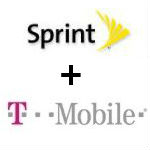 If T-Mobile and Sprint are allowed to merge, they will launch a fixed wireless offering to 52% of U.S. zip codes, said T-Mobile President Mike Sievert yesterday. The T-Mobile fixed wireless offering would specifically target cable companies, Sievert said.
If T-Mobile and Sprint are allowed to merge, they will launch a fixed wireless offering to 52% of U.S. zip codes, said T-Mobile President Mike Sievert yesterday. The T-Mobile fixed wireless offering would specifically target cable companies, Sievert said.
“A really interesting upside for the new T-Mobile is to attack the least competitive and most hated industry in this sector, which is home broadband cable companies,” said Sievert.
“The new T-Mobile” is the phrase that T-Mobile uses for a merged T-Mobile and Sprint.
Pointing to Comcast in particular, Sievert said the new T-Mobile would offer fixed wireless in two thirds of that company’s territory and “we’ll have more homes passed than they do in home broadband with the new T-Mobile.” T-Mobile also has video in its arsenal now too, with their acquisition of Layer 3. A bundled fixed wireless and video offer could be interesting.
T-Mobile Fixed Wireless
In an FCC filing at the time it announced plans to merge with Sprint, T-Mobile said it would launch fixed wireless if the merger were approved, but that filing only references a target market of 52.2 million rural residents over 2.4 million square miles or approximately 84.2% of rural residents.
That filing also references a target speed of “at least 25 Mbps downstream and 3 Mbps upstream.”
If the new T-Mobile fixed wireless service were to provide speeds near that minimum, the offering wouldn’t be the cable company attack product that Sievert describes.
Potentially T-Mobile intended speeds considerably higher than 25/3 all along but referenced those speeds in the FCC filing because they represent a target often referenced by the FCC, and the company may have wanted to reveal as little as possible for competitive reasons. It’s also possible that in the months since the filing, the company has noted a technology cost/performance breakthrough that would enable the T-Mobile fixed wireless offering to support higher speeds and a larger target market.
Sprint Spectrum is Key
Sievert stopped short of specifying speeds for the T-Mobile fixed wireless offering, but his comments about the mobile offering he envisions for the merged company offer some clues. According to Sievert, the merged company’s 5G offering would support “average speeds nationwide of 450 megabits per second” and “100 megabits per second to 90% of Americans.”
Key to these plans is Sprint’s extensive mid-band spectrum holdings. Sievert’s comments indicate that T-Mobile expects to offer both high speeds and considerable range using this spectrum.
The range that a spectrum band can support is key to how quickly service in that band can be rolled out. AT&T and Verizon expect to offer speeds in the hundreds of megabits per second or perhaps gigabit range using 5G technology in the millimeter wave band, but the range that spectrum band can support is relatively short, requiring denser cellsite infrastructure, which will take longer to deploy.
T-Mobile has said its 5G network will be deployed nationwide by 2020 – a claim no other carrier has yet made.
Why Cable?
Why Sievert is emphasizing customers of cable companies rather than all broadband providers as a target market for the T-Mobile fixed wireless offering isn’t clear. If T-Mobile’s fixed wireless speeds are in the same range or even somewhat higher than what the company expects for mobile, it could be hard to beat the gigabit speeds that cable companies can support when they upgrade to the latest generation of DOCSIS technology. Many cable companies already have made that upgrade and others are aggressively rolling out the new technology.
Perhaps Sievert and T-Mobile are hoping to sway FCC opinion regarding the merger by introducing the potential for another competitor in the broadband marketplace, taking on the dominant cable broadband position in many markets.
His comments about consumer perceptions of cable companies also suggest he sees an opportunity to attack the cable market from a customer service standpoint – a strategy T-Mobile has used quite successfully in the mobile market.
Sievert made his comments at the Goldman Sachs Communacopia Conference, which was also webcast.

